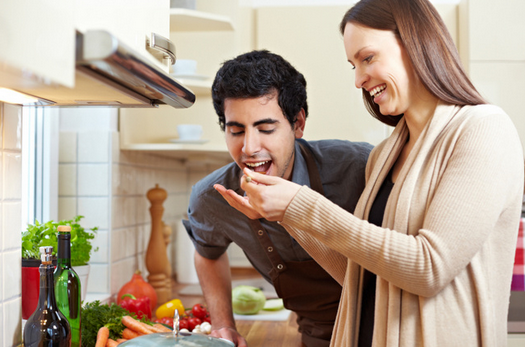Seven in ten have started batch cooking since lockdown began

Seven in ten Brits have started batch cooking (cooking a large meal from scratch, freezing it and reheating it later) for the first time during UK lockdown, according to a survey of 2,000 people by Hammonds Kitchens.
Almost a third (31%) of people new to batch cooking are doing so to ensure they have meals in their freezer, a quarter (25%) are doing it to help them and their family eat healthier and 13% are doing it to save time.
| Household Type | Percentage Batch cooking | Main Reason for batch cooking |
| Living alone | 67% | To ensure there is food in the house (40%) |
| Living with a partner | 62% | To ensure there is food in the house (31%) |
| Living with children | 75% | To help their families eat healthier (40%) |
Although many people batch cook to save money, almost one in four (22%) admit they have ended up throwing away more food than if they cooked each mealtime. Nearly half (47%) of people threw away less food, while 30% of people threw away the same amount.
Residents of Belfast (62%), Bristol (50%) and Glasgow (42%) have the highest number of people who have started batch cooking to ensure they have food ready, whereas residents in Newcastle (38%) Manchester (37%), and Edinburgh (35%) were most likely to start batch cooking specifically to eat healthier meals during the lockdown.
Most common meals to batch cook in the UK
| Type of meal | % of batch cookers who make a meal |
| Curry | 50% |
| Spaghetti Bolognaise | 49% |
| Stew | 48% |
| Chilli | 41% |
| Soup | 35% |
| Lasagne | 28% |
| Stir Fry | 24% |
| Pie | 21% |
| Cakes | 21% |
| Bread | 17% |
| Fruit Crumble (pudding) | 15% |
| Quiche | 14% |
| Tagine | 11% |
| Fruit pies (pudding) | 6% |
Despite a rise in batch cooking, many people are unsure about which foods can be frozen and reheated.
Food health and safety expert, Kirstie Jones, from food safety and technology consultancy Navitas, offered her insight into safety around freezing and reheating food:
“Home freezing is very popular these days as it saves time and money. In simple terms, freezing suspends the shelf life of food. Care needs to be taken to ensure what happens to the food before, during and after freezing is safe, to avoid any food safety hazards, such as survival of bacteria or cross-contamination, that might make you ill.”
Over a third of people (38%) believe cooked rice is completely safe to cool and reheat, but according to Kirstie this is a high-risk food:
“Rice is classified as high risk due to a certain type of bacteria called ‘Bacillus Cereus’ which produces a toxin that, if present, cannot be killed through cooking. There are links to cases of food poisoning where these foods have been handled incorrectly, particularly when cooling. Due to the high-risk nature of rice, whilst freezing is possible, we would recommend that this is avoided – ‘cook and consume’ is the message with rice because we want it to go through the least number of handling steps as possible to keep it safe.”
On the other side, eight in ten (84%) also believed it was unsafe to freeze yoghurt, 91% believed you could not freeze lettuce, 72% believed it was unsafe to freeze fresh herbs and 60% thought cheese was unsafe to freeze. All these foods can be frozen in a safe way and stored in the fridge for months.




